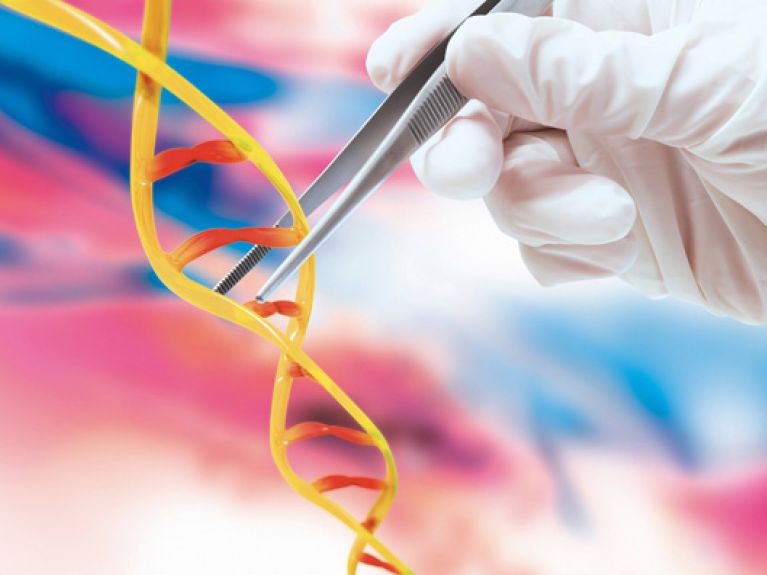Discussion on genome analysis
Genome analysis can be used to promote people’s health. But should everyone be allowed to do it themselves?

“You’d be surprised how much information on reducing the risk from your existing predispositions for certain diseases can already be used today for your own benefit,” says Professor Theodor Dingermann, pharmacist, expert in biochemistry and molecular biology, and professor at the University of Frankfurt. In a lecture at the Medica 2015 medical trade fair in Düsseldorf, he will talk about his own personal experience with the possibilities of analysing one’s own genome. It’s impressive what you can already do today: a genome analysis can tell you your predisposition for obesity, periodontitis, osteoporosis, arthritis, high blood pressure, diabetes, schizophrenia or Alzheimer’s, as well as your tolerance of certain drugs and what effect they are likely to have on you.
The risk of incorrect diagnosis and false interpretation by unqualified people
However tantalizing this prospect may seem, the issue is the subject of a controversial international discussion. The case in point: for eight years now, a US company has been offering genetic tests for everyone on the internet – these days for only 99 dollars. By using this service, anyone can determine their personal predisposition for such hereditary diseases as cystic fibrosis, or their likelihood to suffer from cardiovascular diseases, multiple sclerosis or certain forms of cancer. However, two years ago, the US Food and Drugs Administration prohibited the company from selling the self-test kits to private individuals because it feared incorrect diagnoses and false interpretations of the data by non-experts. Since October 2015, the company has been offering a general test that informs people whether their genes carry an increased risk of 36 rare diseases. However, it remains illegal in the United States to sell self-tests that reveal information about people’s personal risk of common, serious diseases like Alzheimer’s or breast cancer, i.e. without a medical indication or diagnostic-therapeutic assistance from a doctor.
The German physician Matthias Orth, head of department of the Institute of Laboratory Medicine at Marienhospital, Stuttgart, criticizes in particular the trade in so-called lifestyle tests, which can be bought directly by consumers via the internet or from pharmacies without any medical monitoring or advice. “On the one hand it’s impossible to predict how scientifically well-founded the test results really are. On the other hand, of course, data protection is a highly controversial issue,” he says. Indeed, you don’t have to be a crime author or have a sceptical attitude towards progress to imagine what could happen if such sensitive data as your own genome were to fall into the wrong hands. Employers and insurance companies would certainly be highly interested in predictions about the illnesses an employee or customer might have in the future.
Medica medical trade fair, 16-19 November 2015 in Düsseldorf
